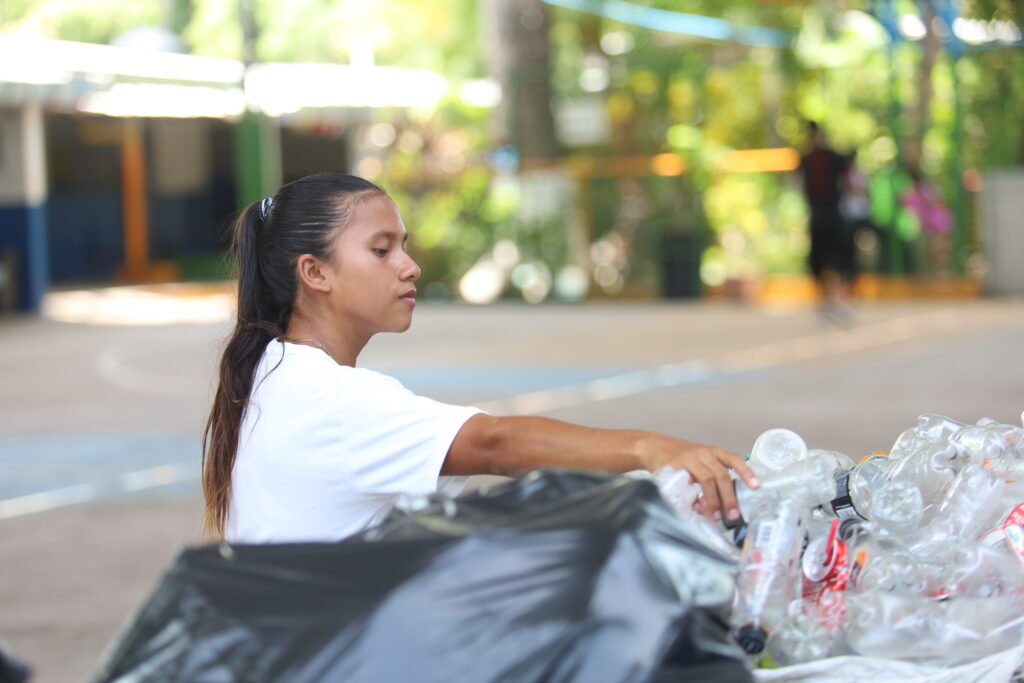Zuleyma, 18, lives in the coastal area of La Libertad in El Salvador with her father, stepmother and siblings. In a country where land elevation is typically less than 10 metres above sea level, Zuleyma’s community is at the forefront of climate change, being especially susceptible to flooding, as it sits next to an estuary.
Watching the mouth of the river overflow with water, especially during the rainy season, used to fill Zuleyma with dread. “The biggest emergency we had was during quarantine,” she recalls. “The water came out of the mouth of the estuary and flooded here. Then we had to go to the school, but we couldn’t leave unless someone came to evacuate us, because it was too full of water.”
Beyond geography, Zuleyma points out, there’s a second culprit in the flooding that has nothing to do with Mother Nature: “When the mouth of the estuary fills up completely with water, the water overflows into the community,” she explains. “It does this because so much trash and leaves clog things up, [giving the water] no other way out.”
Together with several of her classmates, Zuleyma is leading a recycling initiative. Working with other community members, her tireless team has collected over three tonnes of plastic and cans from the river and sold them to recycling companies. In addition to helping prevent flooding, they also prevent trash from ending up in the sea.
Calling herself “a leader and a collaborator,” Zuleyma takes her role seriously. When she’s not collecting waste, Zuleyma is mobilizing her friends and neighbours to join her in protecting their community and environment. Her boundless energy and dedication have earned the attention and respect of her elders. As one community volunteer puts it: “Even though [Zuleyma] is very young … if she is called to something, she is very willing to say, ‘I support; I’m going.’”
For several years, young people such as Zuleyma have actively participated in Increasing Resilience to Floods in Central America, a program facilitated by Plan International. Its goal is to provide community members with technical and community organization tools. The program conducts outreach in schools, training young people in solid-waste management and implementing a collection system that runs solid waste through a recycling station.

Along with receiving instruction on identifying glass, caps, cans and other inorganic waste, participants receive training on gender equality, enabling girls like Zuleyma to adopt leadership roles that will help keep their communities strong. “I consider myself a leader,” says Zuleyma. “We girls have the same rights to say and collaborate in everything.”